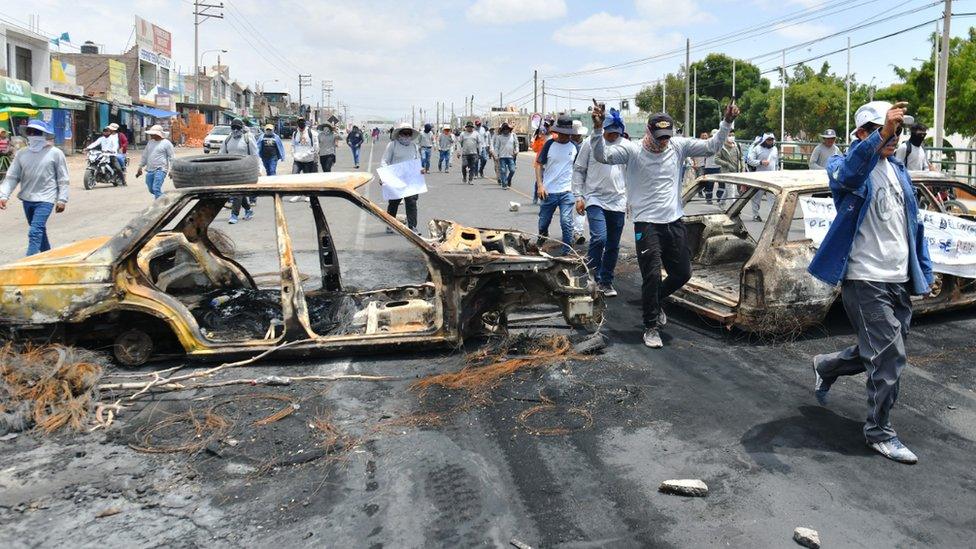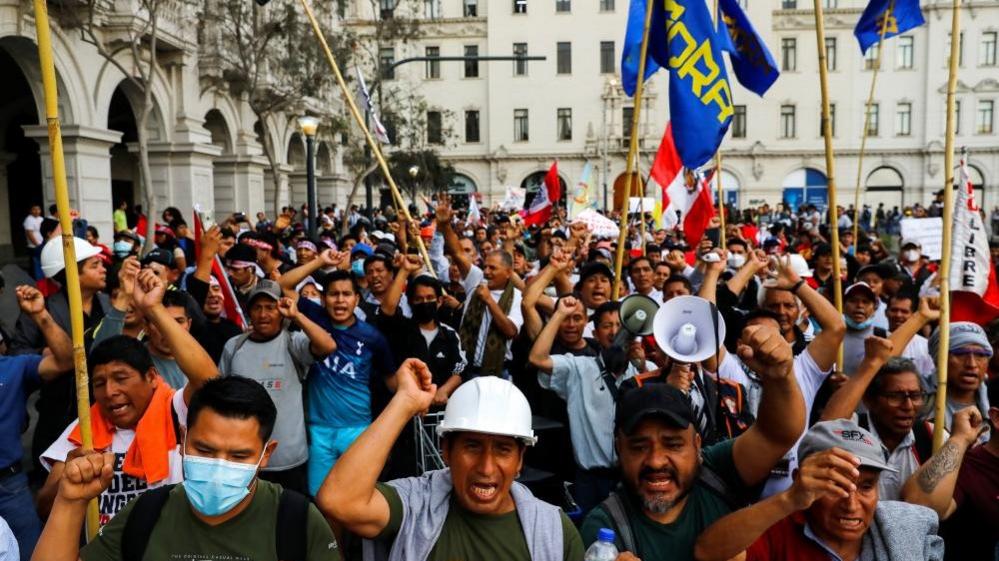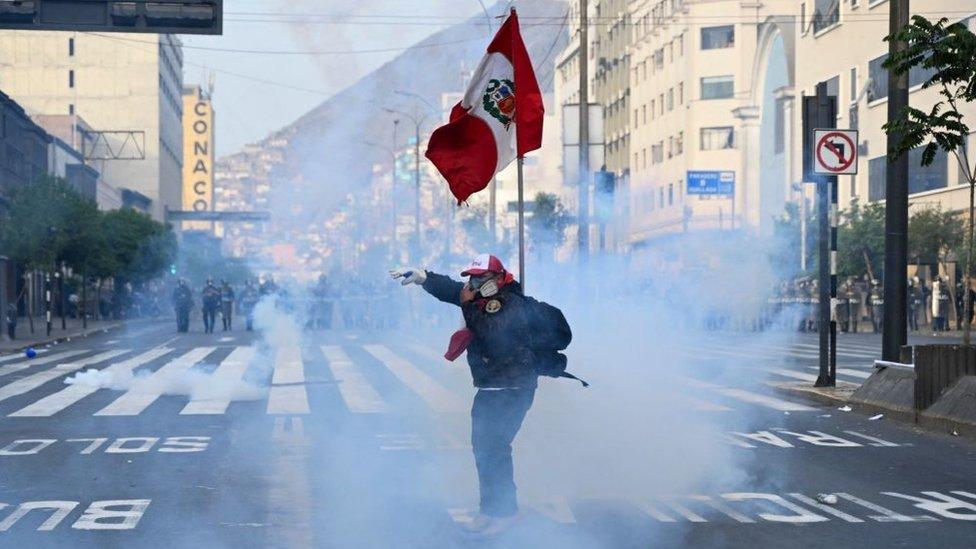Peru protests: President Dina Boluarte refuses to resign amid political crisis
- Published

Supporters of impeached President Pedro Castillo have been blocking major roads across Peru
Peru's President Dina Boluarte has ruled out resigning, saying it would not solve the political crisis sparked by the ousting of her predecessor, Pedro Castillo.
President Boluarte renewed her call for Congress to approve early elections, as a way to curb the street protests that have claimed more than 20 lives.
Congress has dismissed this proposal.
Demonstrators backing Mr Castillo want Ms Boluarte to go - as well as early elections and the closure of Congress.
Peru has been through years of political turmoil, with the latest crisis coming to a head when Mr Castillo announced he was dissolving Congress and introducing a state of emergency.
But Congress proceeded to vote overwhelmingly to impeach him.
Watch: A border between Peru and Bolivia is blocked by protesters
Mr Castillo, who is currently in detention, is being investigated on charges of rebellion and conspiracy. He denies all the accusation, insisting that is still the country's legitimate president.
On Friday, Congress voted against a proposal to bring elections forward to next year.
The latest call for elections by President Boluarte follows high-level talks by Peruvian politicians and Church leaders.
The Council of State, the body made up of representatives of all branches of power, and Church leaders had a three-hour meeting in the capital, Lima.
After the meeting on Friday evening, the head of the National Board of Justice, José Ávila, called on Peruvians to avoid violence and engage in peaceful dialogue with the authorities.
He said government ministers would be travelling to the areas where people were protesting, in order to promote such a dialogue.
Clashes on Thursday between the army and Castillo supporters in the central Ayacucho region left at least eight people dead, health authorities said. Footage on social media showed protesters blocking main roads and airports.
Just hours later, Education Minister Patricia Correa said she was stepping down. In a Twitter post on Friday, she wrote that the "death of compatriots has no justification", and that "state violence cannot be disproportionate and cause death".
Culture Minister Jair Perez also resigned.
The protests are also affecting the country's tourism industry. The mayor of Cusco told AFP news agency that about 5,000 tourists are stranded in the city after the airport there closed when protesters tried to storm the terminal.
The city is the gateway to Macchu Picchu, an ancient Inca citadel which is visited by hundreds of thousands of people a year.
About 800 tourists are also stuck in the small town at the foot of the mountain where the citadel stands, because the railway line which serves it has stopped running.
Some mostly American and European tourists have reportedly left the town on foot along the train tracks in an attempt to return to Cusco.
Related topics
- Published15 December 2022

- Published13 December 2022
